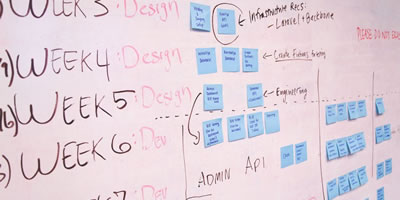- PROGRAMS
- Project Management: Fundamentals and Modern Practices
Project Management: Fundamentals and Modern Practices
This program deals with the management, organization, evaluation, planning, control and monitoring of projects. The program covers technical and operational aspects related to the scheduling of project activities, allocation of available resources, planning of cash flows and risk management, as well as organizational aspects such as strategy formulation, project team management and conflict resolution. Agile project management techniques are also examined for projects with a high degree of uncertainty. Special emphasis is placed on project planning (e.g. defining scope, priorities, specifications, communication plan, task analysis and connection with the organizational structure) and monitoring (e.g. change management and critical performance indicators) to achieve specific business goals.
The program presents all aspects for successful management of technical and non-technical projects in various business sectors, such as construction and information technology. The syllabus of the program is aligned with the framework of the international organization Project Management Institute (PMI - https://www.pmi-greece.org/).
- Develop, execute, monitor and control the plan of a project with the aim of achieving specific business objectives.
- Understand the basic principles of modern project management and how the company's strategy is linked to successful project execution.
- Understand the basic principles of managing a project portfolio.
- Know all aspects of the role and responsibilities of a project manager.
- Apply financial evaluation techniques using Microsoft Excel.
- Apply risk management methodologies and create plans for various contingencies.
- Understand the importance of time, cost, and quality/performance as they relate to project management.
- Use the concepts of project management as a framework for improving the systems and processes of a business.
- Organize, manage, and lead project teams.
Includes training hours (indicative) using an asynchronous distance learning (eLearning) platform.
The total hours include hours of synchronous and asynchronous training, as well as additional hours of employment.
Weeks in which activities of any kind are planned are included.
- Under and post graduate students who want to supplement their knowledge and receive training in management, administration, organization, planning, and monitoring of projects.
- Professionals involved or wishing to be involved in a position related to project management.
- Business executives of any level or freelancers who frequently participate in project teams and wish to deepen their knowledge in project management.
- Business executives who assign projects to third parties and wish to deepen their knowledge in financial evaluation of projects, drafting contracts, and project control and monitoring.
- High school graduates who wish to acquire relevant knowledge in project management.
- High school diploma.
- Basic computer skills (word processing, worksheets, browsers, email).
CONTACT
45, Kefallinias Str., 11257, Athens
-
dummy secretariat@diaviou.aueb.gr
-
dummy+30 210 8203 913
For the in Class programs:
-
dummydiazosis@diaviou.aueb.gr
-
dummy+30 210 8203 916, 912, 914
For the eLearning Programs:
-
dummyelearning@diaviou.aueb.gr
-
dummy+30 210 8203 753





